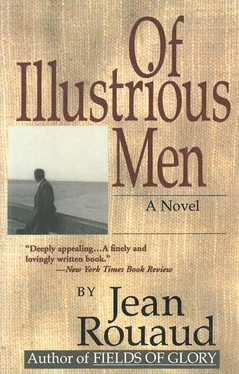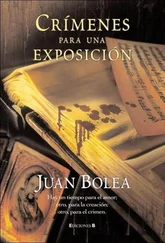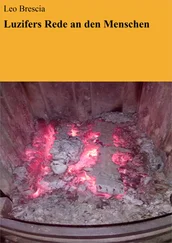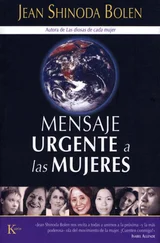Jean Rouaud - Of Illustrious Men
Здесь есть возможность читать онлайн «Jean Rouaud - Of Illustrious Men» весь текст электронной книги совершенно бесплатно (целиком полную версию без сокращений). В некоторых случаях можно слушать аудио, скачать через торрент в формате fb2 и присутствует краткое содержание. Год выпуска: 2011, Издательство: Arcade Publishing, Жанр: Современная проза, на английском языке. Описание произведения, (предисловие) а так же отзывы посетителей доступны на портале библиотеки ЛибКат.
- Название:Of Illustrious Men
- Автор:
- Издательство:Arcade Publishing
- Жанр:
- Год:2011
- ISBN:нет данных
- Рейтинг книги:4 / 5. Голосов: 1
-
Избранное:Добавить в избранное
- Отзывы:
-
Ваша оценка:
- 80
- 1
- 2
- 3
- 4
- 5
Of Illustrious Men: краткое содержание, описание и аннотация
Предлагаем к чтению аннотацию, описание, краткое содержание или предисловие (зависит от того, что написал сам автор книги «Of Illustrious Men»). Если вы не нашли необходимую информацию о книге — напишите в комментариях, мы постараемся отыскать её.
Of Illustrious Men — читать онлайн бесплатно полную книгу (весь текст) целиком
Ниже представлен текст книги, разбитый по страницам. Система сохранения места последней прочитанной страницы, позволяет с удобством читать онлайн бесплатно книгу «Of Illustrious Men», без необходимости каждый раз заново искать на чём Вы остановились. Поставьте закладку, и сможете в любой момент перейти на страницу, на которой закончили чтение.
Интервал:
Закладка:
Very early the next morning he got off his bike outside the shop of Monsieur Burgaud, ladies’ and gentlemen’s tailor at Riancé, a firm founded in 1830 according to the aristocratic gilded coat of arms above the shop window. While waiting for the shop to open, he did his best to make himself presentable, extracting bits of hay from his clothes, wiping the lenses of his glasses, and running a comb through his hair, hoping for the best. Two girls passed him, giggling. They walked through the garden around to the back of the house and shortly afterward one of them began to crank up the shop shutter, once again looking curiously at the half-frozen young man rubbing his hands and stamping his feet on the pavement outside. Since there weren’t any customers, he pushed the door open, and the little copper rods hanging above his head began to jingle. He was immediately enveloped in a warm smell of cloth, which consoled him for his night of vagrancy. The small glass window of the stove cast a flickering orange gleam on the floor. He was scrutinizing the piled-up lengths of cloth wound around their boards, admiring as a connoisseur the long, ornate counter with the square-sectioned wooden measure lying on it, when a woman came in from the back of the shop. By her slightly lopsided gait, which corresponded to the description he had been given of her, he recognized her as Madame Burgaud. “What can I do for you, Monsieur?” she asked suspiciously, keeping her distance from the tall young man who stank of hay. A lot, but he thought it would be more seemly to begin by introducing himself. No doubt she knew all about it — he had been sent by her daughter Marthe and her son-in-law Etienne, who, when they were first married a few years before the war, had gone to live in Random and taken over a firm dealing in grain.
It was Etienne, in whom he had confided after he received his call-up papers, who had advised him to go to Riancé. For the best of all reasons: you never saw a single German there. And then, another advantage in these days of shortages, the town was surrounded by forests that abounded in game, all the more so in that shooting was forbidden, so the most princely supplementary rations were available. Poaching was rife, and on some Sundays it wasn’t unusual for venison to be served at the Burgauds’ table. And anyway, since life in Random had become too difficult, that was where Etienne had sent his wife and three children. There was a warm welcome to be found at the house of his parents-in-law. Alphonse Burgaud knew all the peasants in the region, having at one time or another made suits for them — either for a funeral or a wedding — and he would certainly be able to find a farm willing to harbor the fugitive.
Madame Burgaud asked the tall young man to follow her, took him into the living room-dining room, invited him to sit down in spite of her fears that the tenacious smell of hay might contaminate her armchair, and went to fetch her husband. Three steps inlaid with mosaic led up to this room, which occupied a wing recently built on to the house. Lighted by large picture windows at an angle to each other, it looked out on a little enclosure where a tiny goat was prancing around untethered. Coming back unexpectedly, Madame Burgaud anticipated the question of the young man looking pensively out of the window and, pointing at the animal, said, “With his very unusual business sense, my husband is going to turn us all into goats.”
As the peasants were short of liquid assets, the tradition being that money only came in at the end of the harvest — and a suit sometimes didn’t have the patience to wait — Alphonse Burgaud accepted without haggling whatever he was offered in exchange for his work. A goat for the biggest jobs, some butter and eggs for the more modest ones, and even “You can pay me next time,” if his debtors were too hard up. The first kid of a long and already ancient line of descendants ended up on his table. When the three little girls of the family, from whom the truth had been concealed, recognized in various roasts their playmate of the last few weeks that had inexplicably disappeared, they began to sniffle, then great big tears fell on their plates, and soon, in a chorus of sobs, they refused to touch their food, whereupon Alphonse declared that he wasn’t hungry either. At which Claire, his wife, since that was the way it was, grabbed the dish and tipped all its contents, plop, into the garbage. The goats that followed — there had been as many as four in the fenced enclosure in which there was a log cabin — were allowed to take their time to grow up and die a natural death, to the great displeasure of Claire, who asked her husband to bring them to her as single components in future. In spite of its size, it was a long time since the last one had been a kid. A pituitary deficiency, no doubt, but whatever it was it had allowed the peasant to drive a hard bargain, because, honestly, all those yards of organdy, those dozens of hours spent in plying the needle and ruining one’s eyesight, those long fitting sessions to ensure that the bride would finally look like a fluffy liiftle cloud — all this was worth more than a dwarf goat.
The moment he came into the room, very dapper in a three-piece suit, his pepper-and-salt hair closely cropped, his mustache Chaplinesque, Alphonse Burgaud recognized his visitor and went up to him with outstretched hand. It had been just over two years ago, the sky was as gray as it should be on All Saints’ Day, when the tailor had gone with his daughter Marthe to the cemetery in Random to visit the grave of her firstborn son, a short-lived little Jean-Clair. As he was making his way along a side path arm in arm with his daughter, he had noticed a tall young man in glasses supporting his forlorn father in front of a tombstone covered in flowers. From the abundance of flowers it was easy to guess the recent date of the tragic event, and from the prostration of the father, the magnitude of his grief. A year later, at the same memorial pilgrimage, the same tall young man was there alone. Bending over his family tombstone, he looked as if he was about to lie down on it. The prostrate father, overwhelmed by the intensity of his sorrow, had wasted no time in joining his wife under the gray granite tombstone, demonstrating by his haste a disconcerting fidelity from which he seemed to exclude the young man who, after all, had been the incarnation of his love. And now it was the turn of the abandoned son to weigh the idea of joining them, of resuming the warm place between father and mother of the miraculous child he had been — miraculous in that he had lived, after a long succession of stillborn babies. And that was the moment when Alphonse Burgaud had witnessed a kind of life-saving operation: a little white-haired lady, dressed all in black, her head sunk between her shoulders — an aunt, the most extraordinary schoolteacher in the Lower Loire department, if Marthe was to be believed — trotted up to the despairing young man, tugged at the young man’s coat, rescued him from the hypnotic power of the recumbent stone, finally prevailed, and went off with him along the central path toward the cemetery gates.
By a strange quirk of fate, it was into his hands that this tall young man was now entrusting his safety, as if, pursued on all sides, he no longer knew what to do with the life he had so miraculously been granted. From the moment Etienne had appealed to him to play a part in this saga, which had already fascinated him as an onlooker, Alphonse Burgaud had started looking for a farm where the rebel could be hidden. He had found one at the edge of the forest, on the estate of the Count de la Bregne, the head of one of the most ancient families in France, which is to say neither more nor less ancient than any other but one that was able to trace the continuity of its name throughout the centuries, or at any rate to trace its zigzagging reputation back to an origin that distance rendered more prestigious, and which prompted a marchioness of the ancien regime, contesting the titles of a general of the empire, prince of this and duke of that, to say to him, “Yes, but you have no ancestors.” To which the general, just as covered in glory and in wounds as the lowborn crusader who had been the founding father of her noble line, had magnificently replied, “But Madame — we are the ancestors.” Although this wasn’t very kind to his father, either, who may have been a simple innkeeper, a caste that has no pretentions to ancient lineage, unless of course among innkeepers themselves.
Читать дальшеИнтервал:
Закладка:
Похожие книги на «Of Illustrious Men»
Представляем Вашему вниманию похожие книги на «Of Illustrious Men» списком для выбора. Мы отобрали схожую по названию и смыслу литературу в надежде предоставить читателям больше вариантов отыскать новые, интересные, ещё непрочитанные произведения.
Обсуждение, отзывы о книге «Of Illustrious Men» и просто собственные мнения читателей. Оставьте ваши комментарии, напишите, что Вы думаете о произведении, его смысле или главных героях. Укажите что конкретно понравилось, а что нет, и почему Вы так считаете.












